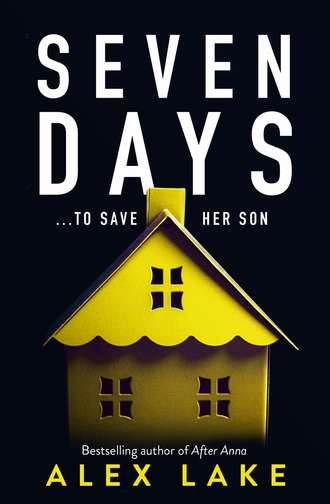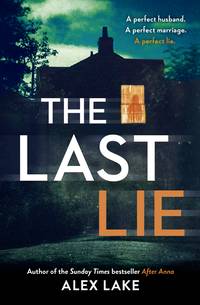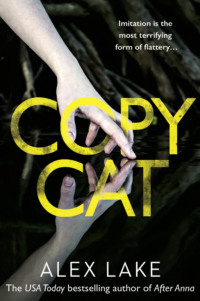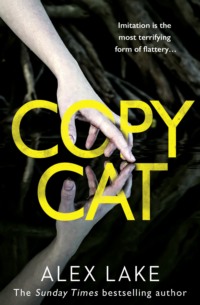
Полная версия
Seven Days
And yet she was getting older. She had grown up, become a woman, both mentally and physically. Her life was moving along, slipping away. Ten years from now her metabolism would be slowing down; ten years later she’d be going through menopause.
And the man was getting older, too. He was – what, fifty-five? – when he took her, so he was in his late sixties now. He seemed healthy enough, but in another decade or two? He could become ill, or slip and fall, and then what? By the time they got to her and Max they might have starved.
If Max was still here then. It might be another two-year-old, unknowingly awaiting removal as soon as his third birthday arrived.
Max leaned forward, resting his face against her chest. He had always loved the feel of bare skin; often in the morning he would lie awake on top of her, his torso pressed to hers. She wondered why it felt so good to him. Perhaps he was listening to the sounds of her body, sounds he remembered in some dim way from his time in her womb.
‘Mummy,’ he said. ‘Can I have a story?’
Maggie kissed his head. The soft curls of his hair brushed her cheek.
‘Of course,’ she said. ‘About Superman? Since you’re wearing your Superman undies?’
He shook his head. His eyes were closing. ‘About the light beam,’ he said.
‘Ah,’ Maggie replied. ‘The beam of light. Our magical beam of light. Our beautiful beam of light. Is that the story you want?’
Max nodded. ‘Yes.’
‘Then you can have it.’ She paused, wondering where to start. A few months back she had started telling him a story about a beam of light that had a special property: you could ride on it and it could take you, in an instant, to places far, far away. They had ridden it to visit kangaroos in the Australian outback and beaches on the Australian coast, to experience snow-capped mountains and winter storms in Antarctica, to shop in frantic markets in Thailand where you could buy anything you wanted, to marvel at giant skyscrapers in America and to stare in awe at ancient civilizations hidden in deep jungles. They had gone to meet Harry Potter at Hogwarts, and to stroke Aslan in Narnia and to ride with the hobbits and elves of Middle Earth. Maggie saw no reason to exclude those places – some of the most magical of her childhood – from the adventures.
Today, she decided, they were going into the cosmos.
‘So,’ she said. ‘The beam of light—’
‘Mummy,’ he said, suddenly. ‘Am I a beautiful boy?’
‘Yes,’ Maggie replied. ‘Of course. That’s why I tell you so often.’
‘You’re a beautiful mummy,’ he said.
Maggie blinked, tears springing to her eyes. All parents probably marvelled at the things their children picked up, the words they came back from nursery or kindergarten or school with, the games they learned from their friends, the interests they developed out in the world. Max did not have any of those things, but even he made connections on his own. She had never asked him to call her beautiful, never explained why that would be a nice thing to do, but, somehow, his infant brain had understood that this person who loved him and who he loved used a word to describe him and so it would be nice to use it about them.
It showed that all her stories were working.
‘Close your eyes,’ she murmured, holding him against her and speaking into his hair. ‘Here comes the beam of light.’
He snuggled closer to her. ‘I don’t see it,’ he said.
‘That’s because it’s invisible,’ she replied. ‘But it’s here.’ She made a small jumping motion. ‘We’re on board,’ she said. ‘Hold on tight!’
She pursed her lips and made the noise of rushing air.
‘Oh my,’ she said. ‘We’re going very high. I can see the clouds already. Everything’s so small down below.’ She paused. ‘I think, Max – I think we’re going into space.’
His eyes blinked open. ‘Space?’ he said. ‘Is space scary?’
‘No,’ Maggie replied. ‘It’s beautiful. And so quiet. Look – there’s the Earth, below us. You can see the oceans and the continents. You remember Australia – there it is. And over there’ – she pointed to the door, watching as Max’s gaze followed her finger – ‘there’s the moon.’
It was incredible to see how easily he slipped into make-believe. In his mind, the room really was transformed into space, although exactly what he thought space was she had no idea. She remembered doing the same in her own childhood. She had gone through a spell when she was obsessed with some He-Man and She-Ra dolls her dad had bought for her. She had played with them for hours, inventing all kinds of scenarios and stories in which they were rescued from danger or won battles or made and broke friendships. She had really believed in them.
And for Max the moon and stars and Narnia were just as real as anything else. As far as he was concerned, Warrington Town Centre was as remote and exotic as the moon. They both existed only in his mind.
‘Look,’ she said. ‘There’s the man in the moon.’
‘Who’s he?’
‘He lives on the moon. You can see his face on a dark night.’
Max looked at her. ‘Can I see it tonight?’
Maggie tried to smile. ‘You have to be outside.’
‘Oh,’ Max said. ‘Outside.’
Outside was a place Max had heard of, but never been. For him it was a bit like space, or Hogwarts, or Narnia.
‘We can see him in our imagination, though,’ Maggie said. ‘There he is!’
‘What’s he doing?’ Max asked.
‘He’s digging up some moon rocks to eat,’ Maggie said.
‘He eats rocks?’
‘The moon is made of green cheese. That’s what he eats.’
‘Where’s his mummy?’ Max asked.
Maggie’s answer caught in her throat. He hadn’t asked where are his friends or where is his brother, but where’s his mummy. It was an unwelcome reminder of the smallness of his life.
‘She’s at his moon house,’ Maggie said. ‘She loves him very much.’
‘I love you very much,’ Max said, his eyes nearly closed. ‘And I want to go back to the moon.’
He was starting to fall asleep, his body relaxing. Maggie kissed him on the forehead as his breathing deepened.
‘I love you too,’ she whispered. ‘More than you will ever know.’
3
Maggie was nearly asleep when she heard him coming. She always knew he was on his way; there was a kind of scraping noise, like rock or steel grinding, which she assumed was a door of some kind hiding the entrance to the stairs that led to the room.
She had imagined it many times since the first time she had heard it. Was it a manhole cover in the corner of his garage? Or a heavy stone in his garden? Or a thick wooden cover hidden at the back of a wardrobe? She had no idea; all she knew was that, twenty or so seconds after she heard the noise it made when he moved it, the door to the room would open, and he would be there.
He came every morning, with breakfast, and every afternoon with dinner. It was how she knew the days were passing for her calendar.
And sometimes he came at night. It was when he brought things she needed. Fresh clothes. Cleaning supplies. A new toothbrush.
And when he wore the blue bathrobe. He never took it off. He just undid the belt and let it fall apart and then made her lie face down while he did what he did.
After he’d raped her he would often stare at her, silent and impassive. She had the impression he was waiting for her to say something, but she never had anything to say. All she wanted was for him to leave her alone.
Now, though, three or four days could go by without him showing up at night. She suspected that, as he grew older, he was losing interest in sex.
It was, other than Max, the only bright spot in her dismal world.
He was coming tonight, though.
The door handle turned and, with a click of the lock, it opened. He stepped inside, his bare shins sticking out from under the bathrobe, the ankles mottled and dark.
He locked the door, the key – as always – suspended on a chain around his wrist.
He was tall, certainly taller than her father, who was six foot one, which put him at what – six three? Six four? – and he wore thick-rimmed, old-fashioned glasses. The lenses were always perfectly polished, and she had a recurring image of him sitting in a floral-patterned armchair, news on the radio, his glasses in one hand and a cloth in the other. When he wasn’t in his bathrobe, he dressed in shapeless grey trousers and white or blue short-sleeved shirts, which, although clean, were faded and shabby, and carried a musty odour, as though they had been left in the wardrobe too long.
He looked at her, his gaze resting on her face, before moving down over her breasts and then legs. It was an appraising look, like the look a farmer might give a cow.
He nodded at the mattress where Max was sleeping. ‘Move the child.’
She picked up Max and laid him on the carpet next to the barrel-bath. She put a pillow under his head and stood up.
The man put his hands on her shoulders and turned her away from him, then pushed her face down on to the mattress. He tugged at her shorts and underwear, then waited as she pulled them down. She heard the noise of tearing as he opened a condom packet – he always used one when the boys were alive, only getting rid of them when she was childless, for reasons she had never understood – and then she felt his weight on her back.
She closed her eyes and thought of the light beam. Of the Man in the Moon. Of Australian beaches she had only seen on soap operas.
There had been a time, early on, when he had tried to kiss her before he raped her. He’d had a strange look on his face, a kind of nervous yearning, which had hardened into his usual scowl when she turned her head away.
He had not tried again.
It had confused her, at first, but afterwards she had understood what had happened. He wanted a relationship. He wanted her to enjoy it, as though they were girlfriend and boyfriend. Wife and husband.
The idea sickened her. The idea terrified her. It showed her just how delusional he was.
When it was over, he stood up. She turned to look at him. He gestured to the plates, and she scrambled to pick them up. She walked to him and put them in his outstretched hands. Up close his skin was sallow, his face badly shaved. His eyes were sunken and red-rimmed and he looked tired.
He looked ill.
Maggie had a sudden sense that things had changed, that she – and Max – were becoming a burden to him. Maybe he no longer wanted her there. Maybe he would welcome the chance to be rid of them. After all, he was getting older, and he must be wondering what to do with them.
Hope surged in her. There was – perhaps – a crack in the wall. She could offer him a way out. Make it easy for him.
This was it. This was her chance.
‘Can I ask you something?’ she said.
The man looked at her. After a few moments he nodded.
‘Why don’t—’ now she was saying it, it seemed absurd, the right words hard to find – ‘would you consider – is there any chance – would you – would you let us go?’
There was a long silence. The man blinked, almost as if he had not understood the question. Maggie carried on.
‘I wouldn’t say anything,’ she said. ‘I wouldn’t tell a soul, I promise. You could drop us off hundreds of miles from here and I’d tell people I didn’t know where we’d been. I’d say I had no memory, and Max is too young to say anything. I don’t want to get you in trouble. I don’t hate you. I just want us to be free. It would work, it really would.’
He stared at her, motionless.
‘And then you’d be rid of us,’ she said. ‘You wouldn’t have to be back and forth all the time, bringing food, worrying how we were. You could get on with your life, and we would never mention you. I mean, I don’t even know your name!’
He tilted his head, and for a moment she thought she saw a softening in his expression, and she was sure he was going to say yes, he was actually going to say yes.
And then he spoke.
‘No,’ he said, his voice low and toneless. ‘That’s impossible.’
‘It’s not! It’s easy! All you’d have to do is take us somewhere far away and leave us—’
‘That can’t happen.’
‘It can,’ Maggie said. ‘Of course it can, and you were thinking about it. I saw you. You were considering it. Please. Please. It’s a good idea. Please.’
He shook his head. ‘No. I can’t.’
‘Why? Why not?’
He pointed at Max. ‘Because of him.’
‘Max?’ Maggie said. ‘He’s still a baby! He has no idea who you are. How can it be because of him? He won’t say anything!’
‘He doesn’t need to. He’s my son.’
Maggie felt a growing confusion. Was he saying that he felt some paternal instinct towards Max? That keeping him here was some weird parenting method, and that he didn’t want to be apart from him?
‘You can see him whenever you want,’ she said. ‘I prom—’
‘That’s not it,’ he said. ‘He has my DNA.’
‘I don’t understand,’ Maggie said. ‘I don’t see how that’s a problem.’
‘They’ll look at his DNA and it will lead them to me. They have my DNA in their system. They take it for anything. So the answer is no.’
‘They can’t do that! It’s not possible!’
‘Maybe not. But it might be possible, and that’s enough. I can’t take that risk.’
‘Then I won’t let them have Max’s DNA. I’m his mum. I can stop them taking it.’
‘They will anyway.’ He shook his head. ‘It’s not going to happen.’
Maggie watched him walk across the room, his thick ankles clicking above his slippers. He took the key from the chain around his wrist and unlocked the door, and then he was gone.
Maggie sank on to the bed. Tears welled up; for a moment she’d believed that the end of this nightmare had come, but, like every other hope she’d had for the last decade it had come to nothing.
She looked at the calendar.
S Su M Tu W Th F 1 2 3 4 5 6 7 8 9 10 11 12 13 14 15 16 17 18 19 20 21 22 23 24 25 26 27 28 29 30Sunday was over. Tomorrow was Monday. Five days until he took Max. She had to find a way to save her son. She had to.
But she had had to for a long time, and there was no reason to believe that in the next five days she would be any more successful.
Twelve Years Earlier, 7 July 2006: Evening
1
Martin Cooper held the phone to his ear and dialled his niece’s mobile. He read the time on the display: 18.17. Maggie had said she would be back for dinner but she had not showed up. He wasn’t too concerned – she was fifteen and could stay out past dinner if she wanted to, but he would have liked her to let him know, which was why he was calling Anne. It would be an opportunity to remind his teenage daughter that it would be polite to tell the people who were cooking a meal for you that you wouldn’t be coming.
Anne’s voice came on the line. ‘Hey.’
‘Anne. This is Uncle Martin.’
‘Oh,’ Anne said. ‘Hi. How are you?’
‘I’m good. Could I have a chat to Maggie?’
‘Maggie? She’s not here.’
Martin felt himself become more alert. ‘I thought she was with you?’
‘I haven’t seen her. She said she might come over, but she didn’t show up.’
Martin frowned. ‘That’s what she told me, too. Do you know where she went?’
‘Probably to see Kevin. Or maybe Fern.’ Anne paused, then said, with a laugh. ‘You should get her a mobile phone, Uncle Martin, then you could call her anytime you wanted.’
For a second, Martin thought this was staged. He had a mental image of Maggie telling Anne she’d stay out until her dad called and asked where she was, so Anne could make the point that it was time to get her a phone of her own. Then Maggie would come on the line and say, See, Dad? I need a mobile phone. She may be right; perhaps it was time. At fifteen, she was out on her own a lot more. He and Sandra had agreed that she could have one when she turned sixteen, but perhaps they would have to bring it forward. It was such an expense, though, and then James – still only fourteen – would demand one too.
She did not come on the line, though. Anne’s voice returned instead:
‘If I hear from her, I’ll tell her you’re looking for her,’ she said.
‘Thanks, Anne,’ Martin said. ‘Call me the minute you hear, would you?’
He hung up, then called Kevin’s home number. As the phone rang he felt a mounting sense of worry. He dismissed it; it was not that late, and there was almost certainly nothing wrong.
But still. You never knew.
Kevin’s dad, Brendan, answered.
‘Hi, Bren,’ Martin said. ‘I was wondering whether Maggie’s with you?’
‘Nope,’ Brendan replied. ‘Not seen her. Let me grab Kev. See if he knows.’
A few moments later, Kevin came on the line. ‘Hi, Mr Cooper,’ he said. ‘Are you looking for Mags?’
‘Yes. Have you seen her?’
‘She was out in town this morning with Fern. Me and Mark met her at McDonald’s. We were going to hang out tonight. She said she’d call when she was home and I could come and watch a film.’
‘She’s not back yet. You haven’t seen her since this morning?’
‘She said she was going to Anne’s this afternoon.’ Kevin hesitated. ‘At least, I think she did.’
‘She told me that, too,’ Martin replied. ‘But Anne hasn’t seen her.’
‘Maybe Anne wasn’t there when Mags showed up,’ Kevin said. ‘She would have gone to Fern’s.’
‘Thanks. I’ll try her there.’
Martin hung up, then selected Fern from speed-dial. She had a place on it, unlike Kevin, which he had heard Kevin ask Maggie about. He’d sounded a little desperate, and Maggie had sounded a little exasperated. He wasn’t sure how much longer their relationship would last. He’d be sorry to see Kevin go; he was solid and unthreatening, and Martin preferred that to some nineteen-year-old thug with a driving licence and a car that struggled through its MOT every year.
Fern answered. She had no more information than Kevin; she had seen Maggie that morning and thought she was planning to go to Anne’s. She ended the call by offering to call around and see if anyone knew anything.
Martin was about to say, No, don’t worry, I’m sure she’ll show up, but he caught himself.
‘Yes,’ he said. ‘That would be very helpful.’
2
Martin turned the gas hob on and put a pan of water on it. He stirred the Bolognese sauce. As the water began to bubble he heard the front door open.
Here she is, he thought, and walked out of the kitchen and into the hall.
It was Sandra and James. James was in his football kit, his bag over his shoulder. He slung it on to the stairs.
‘Don’t leave that blocking the stairs,’ Sandra said. ‘Go and put it away. And tidy your room while you’re up there.’ She looked at Martin and shook her head. ‘He’s a savage,’ she said.
Martin didn’t answer. She frowned. ‘Everything OK?’
Martin had a tense, almost nauseous, feeling in his stomach. Even though there was probably a simple explanation, he couldn’t avoid thinking the worst. He knew he was unnecessarily anxious, what his mum had called a ‘worry-wart’; whenever Sandra was out at night he couldn’t go to sleep until she was home, visions of car crashes or worse swimming in his head – but knowing he worried too much didn’t help. He was not the kind of father or husband or son who could relax and wait for news to come under the assumption it would be good. For him, no news was always bad news.
‘I thought you were Maggie,’ he said. ‘She’s not back yet. I called Anne and a couple of others. No one’s seen her.’
Sandra stared at him. For a moment there was worry in her eyes, but then she smiled. Unlike him, Sandra assumed that things were generally OK. ‘She’s a fifteen-year-old girl,’ she said. ‘She’s probably with a different friend. Or at the cinema.’
‘She should have told us.’
‘Yes, she should. But she didn’t. She’s not a little girl any more, Martin.’
‘I know.’ He took a deep breath. ‘I still worry though.’
‘I know you do. It’s one of your more attractive traits.’
‘It might be time to get her a phone,’ he said. ‘Then this won’t happen again.’
‘That’s probably why she’s stayed out,’ Sandra replied. ‘So she finally gets the white whale, the elusive mobile phone.’
‘Not fair!’ The call came from the top of the stairs. ‘If she gets a phone, I want one!’
‘You’re fourteen,’ Martin replied. ‘Not a chance. And wash your hands before dinner. It’s nearly ready.’
3
He didn’t eat dinner; he couldn’t. His stomach was tight and clenched and the spaghetti bolognese on his plate looked totally unappetizing.
James nodded at his plate. ‘Can I have that?’
Evidently his son was not feeling the same way. Martin passed it over and stood up. He looked at the clock over the sideboard. It was nearly seven p.m. Maggie had never stayed out this late without letting them know; she always told them when she was going to be out, and where she was going to be.
Not this time. Maybe it had slipped her mind, but he didn’t think so. She was somewhere, and someone knew where that was.
He went to the phone in the hall and called Kevin.
‘Have you seen her?’ he asked, when Kevin picked up.
‘No. I was waiting for her to call. About coming over.’
‘Any ideas where she might be?’
‘No,’ he said. He sounded as worried as Martin, although Martin suspected it was for different reasons. Kevin was no doubt worried she was with another boy.
He hung up and called Anne again. It sounded like she was in the pub.
‘Any sign of Maggie?’ he said.
‘No.’ Anne said something to someone and the noise of the pub died down. ‘Sorry about that – I’ve come outside,’ she said. ‘I couldn’t hear in there. Is everything OK, Uncle Martin?’
‘Maggie still hasn’t turned up.’
‘God,’ Anne said. ‘I hope she’s OK. I’ll ask around, shall I?’
‘Please. Call if you hear anything.’
He tried more of her friends. Everyone he could think of. Chrissie – in Nottingham, but still possibly in possession of some useful information – Jeffrey, Oscar, Fern, Meg, Jessie. They always knew what the rest of them were up to.
Except now. None of them knew anything.
He stood with the receiver in his hand. If she wasn’t with a friend, then where was she? Images of bodies in ditches or on hospital trolleys came unbidden. He forced them away. That wasn’t it. There was another explanation, a reason she had said she was going to Anne’s and then not shown up, a reason she had not told anyone where she was.







